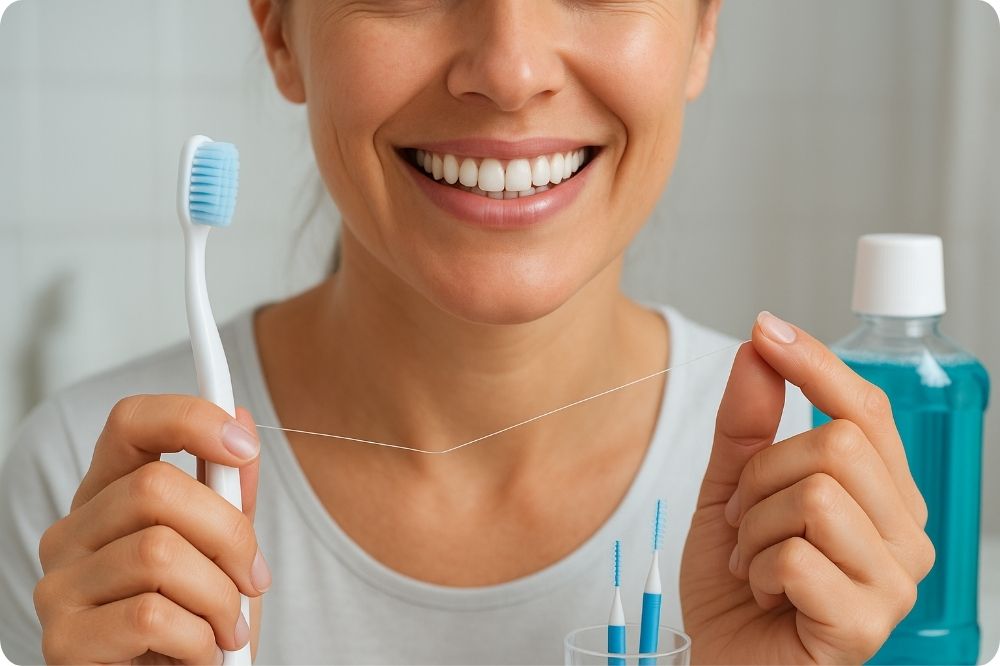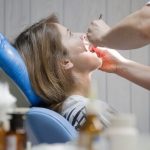Dental implants are a trusted and natural-looking way to replace missing teeth. They help you chew and feel confident. But like real teeth, dental implants need regular cleaning and care to stay healthy. Knowing how to take care of your dental implants helps them last many years without problems.
Caring for dental implants in Brandon means more than just brushing. You need special ways to stop infection and protect the gums and bone around the implant. Following the right routine helps your dental implants stay strong and work well for a lifetime.
What Is Dental Implant Care and Why Is It Important?
Dental implant maintenance refers to the preservation of the health of the implant as well as the surrounding tissues. If not taken care of, bacteria can accumulate around the implant, and if not treated, it can cause inflammation or infection called peri-implantitis, resulting in implant failure.
Proper maintenance prevents such issues by keeping the area clean and minimizing plaque accumulation. It maintains gum health and keeps your implant as long as it is meant to be.
What Are the Best Dental Implant Cleaning Tips?
There are easy steps to brushing dental implants:
- Brush with a soft toothbrush around your dental implant.
- Floss once a day using floss specifically designed for implants or a threader to remove food particles under the implant crown.
- Brush tight spaces using an implant-specific small interdental brush.
- Rinse with antibacterial mouthwash prescribed by your dentist or oral surgeon.
- Do not use abrasive toothpaste that may scratch the implant surface.
- Schedule regular professional cleanings with an oral surgery near you or a dental hygienist familiar with implants.
How Often Should You Perform Dental Implant Maintenance?
Taking care of your dental implants every day is very important, but you also need professional care. Clean your dental implants every day and visit your dentist or oral surgeon for checkups every 3 to 6 months.
During visits, your dentist can find early problems and clean spots you might miss at home. Regular professional cleanings help keep your dental implants healthy and prevent costly repairs or replacements later.
How Does Cleaning Dental Implants Differ from Natural Teeth?
Dental implant cleaning is not the same as cleaning natural teeth because implants don’t have the periodontal ligament that protects natural teeth.
This means:
- Implants need extra care to stop gum swelling.
- You should be gentle to protect the implant and your gums.
- Special tools and ways might be needed to clean hard-to-reach spots where bacteria hide.
Cleaning well every day and going to your dentist often helps keep your implants healthy and lasting a long time.
Trust the Experts for Your Implant Maintenance – Visit Today!
Want to keep your dental implants healthy and strong for many years? At Orange Blossom Oral Surgery – Brandon, we are experts in placing implants and giving you care advice just for you. Don’t wait for problems to happen. Book an appointment today to give your dental implants the care they need.
FAQs
Can I use an electric toothbrush on dental implants?
Yes, you can. Just use a soft brush head made for implants so you don’t hurt the implant or your gums.
How does your diet affect your dental implants?
Eating healthy and not eating too much sugar or acidic foods helps keep your gums healthy and stops plaque from building up around your dental implants.
Is it normal to feel some sensitivity around dental implants after cleaning?
A little sensitivity can happen, especially if you are new to taking care of implants. But if the pain lasts a long time, see your oral surgeon.
Can smoking affect dental implant care?
Yes, smoking makes healing slower, raises the chance of infection, and can hurt the success of your implants.
What signs show my dental implant needs a dentist’s help?
Watch for redness, swelling, bleeding near the implant, or if the implant feels loose. If you see these, visit your oral surgeon or dentist right away.







